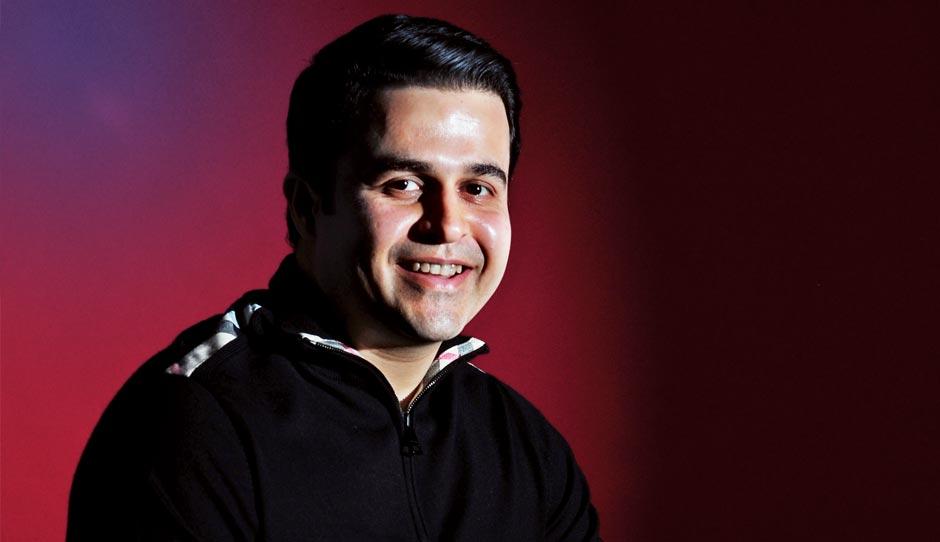The Second Generation Maverick: Rahul Seth
- BY Shreyasi Singh
 In People
In People 19867
19867 0
0

Rahul Seth takes us through the early days of joining Sudhir Gensets, his father’s Rs1,200-crore company. What worked for him was his age. He was so young that nobody felt threatened by him.
I started coming to our office when I was doing my bachelor’s, essentially to kill time after college and because my father told me he’d double my pocket money if I did. When I began, I was given the worst chair in office, next to a pillar with very little room to sit. I was thin and young so I managed! I was asked to check bank statements and transporters’ bills—it was very clerical. My father thought that if I could actually sit on a chair and do that for half a day, it showed that I had patience. It didn’t take me long to tune into business. I liked what I saw.
The work I was given wouldn’t take me long to finish so I began interacting a lot with my colleagues. That’s where I learnt the maximum. I got hooked on to marketing and began going to meetings with the sales guys. Meeting customers was a real pleasure. There, I felt our business was really differentiated from others. We dealt with a large universe—industry clients, real estate, infrastructure and individual customers who needed gensets for their residences.
I had overcome the resistance of being born with a silver spoon when I worked there between 17 and 20. - Rahul Seth
We didn’t have a marketing process then. So I set up a marketing tracking enquiry system. It was very simple and handwritten. But it worked. In fact, when I went to the UK to study for my MBA, people actually missed my presence. My father was surprised when people would tell him that. He’d ask them how a 20-year-old could make so much of a difference. It wasn’t me; the lack of focus on maintaining a proper tracking system led to business slippage.
It’s only after I came back with my MBA degree that I was given both responsibility and accountability. I took over the marketing role, and tried to create a process-driven system rather than one driven by individuals. Sudhir Gensets was around Rs170 crore then with some 300 employees. My father had an extremely talented and loyal group. But business was done in a more individualistic way. I could make changes because people responded well to me. I had overcome the resistance of being born with a silver spoon when I worked there between 17 and 20. Because I was so young when I first began coming to office, nobody was threatened by me. In fact, many people wanted me to be there because I acted as the bridge between them and my father.
I don’t try to fight what I’ve been born with. Employees, clients and people around you might see you in a certain way because of what you’ve inherited. You can get annoyed with it, or just accept it. When you have a lottery, you can only be thankful for it. But a lottery doesn’t last forever. Eventually, you have to start earning it, and prove you’re worth it. One of my uncles told me that he’d seen several businesses where the father earned all the money, and the son destroyed it so by the time the grandchildren grew up, they could only talk of their dadaji’s achievements. He told me to make sure my children should be able to see what we’ve created.
I’m happy I’ve been able to contribute continuously. When I joined, we had a very family-oriented work culture. I cherish that too, and want to carry it further. But I differed from my father on some things. Say, when somebody wanted to resign, he’d always want to stop them. He would get hurt and take it personally. I tell him that I understand that he doesn’t wish his people to leave. But beyond a point, negotiating is weakness. It’s important to make an honest attempt to retain employees. Yet, you have to also learn to let go. I’d rather focus on creating an environment where people love working for us. My father has come around to that as well.
But I didn’t win his confidence overnight. It was in 2006-07 that I first think he was really proud of me. We grew by almost 50 per cent that year, and expanded our business from gensets to electrical contracts. We won our bid for the metro project which was worth Rs200 crore. Plus, the same year we set up a new plant, for which I was responsible. We had put up that plant in record nine months. All this happened simultaneously and I was involved in all of these developments. In fact, my designation changed right after that when I was promoted to the role of joint MD.
My father is my benchmark. He has a lot of hunger and aggression. He’s always talking about taking things to new heights. I’m more of an executioner. I want to perfect something first before moving on to the next plan. I have to confess I find it difficult matching his pace. We did business of Rs1,200 crore last year. His plan is for us to be a Rs2,500-crore organisation in the next three years.
MY TIP
Don’t try to fight what you have been born with. You can get annoyed with people judging you or accept it. Eventually, you have to start earning your lottery, and proving you’re worth it.
Company Profile | Sudhir Gensets
A leading manufacturer of diesel gensets and sub-stations, Sudhir Gensets was founded in 1973 by Sudhir Seth. Today, the Gurgaon-based company is ubiquitous. It has powered major sites and utilities like Delhi’s Metro stations, the Commonwealth Games Stadium and the All India Institute of Medical Sciences among others. It’s also grown to a turnover of more than Rs1,200 crore.





























Add new comment